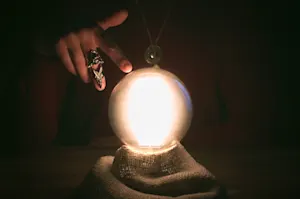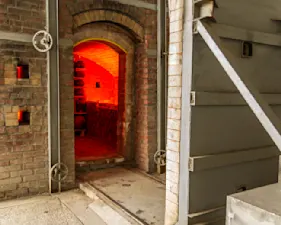What Makes This Word Tick
"Picaresque" might sound like a Picasso painting, but it's all about storytelling. In the literary world, it refers to a genre featuring the rambunctious adventures of a roguish hero of low social class who lives by his wits in a corrupt society. Think of it as the cheeky rebel of literature, often offering social critique with a wink and a nudge.
If Picaresque Were a Person…
Imagine a scruffy, quick-witted hustler with a twinkle in their eye, always ready with a clever plan to dodge trouble. They might not be rich or noble, but they've got a wealth of street smarts and a knack for charming anyone, from duchesses to dockworkers.
How This Word Has Changed Over Time
"Picaresque" has origins reaching back to 16th-century Spain, describing tales of cunning protagonists navigating a morally ambiguous world. Over time, its use expanded from novels to encompass any narrative, including movies or television, that follows a roguish antihero's adventurous, episodic journey.
Old Sayings and Proverbs That Use Picaresque
There aren't many classic proverbs that use "picaresque," but the idea of being clever and worldly-wise is echoed in sayings like "the world is a stage," which implies life is a sequence of acts — much like a picaresque narrative.
Surprising Facts About Picaresque
Despite their crafty nature, picaresque characters often highlight social inequalities and injustices, making them unexpected heroes who expose societal flaws. The genre has inspired countless works across cultures, proving its universal appeal and timeless intrigue.
Out and About With This Word
In our daily lives, we might find "picaresque" used to describe someone with a knack for adventure and tricks, be it a friend's wild travel tales or a cheeky relative who's always up for a scheme. Modern usage extends to anything mischievously charming.
Pop Culture Moments Where Picaresque Was Used
Pop culture is peppered with picaresque adventures, from movies like "Catch Me If You Can," which paints a picture of a charming con artist, to TV shows like "Breaking Bad," where the main character's descent into the illegal is graced with wit and danger.
The Word in Literature
"Picaresque" is a cornerstone of literature, found in classics such as Cervantes’ "Don Quixote" and Fielding’s "Tom Jones." These works are celebrated for their intricate plots and bold characters navigating a morally complex society, serving as a roadmap for countless stories.
Moments in History with Picaresque
The picaresque spirit resonated through the Beat Generation, when authors like Jack Kerouac chronicled life on the road with a mix of defiance and introspection. Their journeys reflected the picaresque theme of exploring freedom and identity outside societal norms.
This Word Around the World
While "picaresque" originates from the Spanish word "pícaro," similar themes are found globally. In Japan, you might see elements in ronin stories — wandering samurai with no lord or master, moving through a world that challenges their moral compass.
Where Does It Come From?
"Picaresque" hails from the Spanish "pícaro," meaning rogue or rascal. This genre emerged from early Spanish novels that portrayed realistic, if morally questionable, characters, often questioning societal structures through satire.
How People Misuse This Word
Often, "picaresque" is mislabeled onto any adventure tale, when true membership in the genre demands not just a series of adventures, but a rogue-like character interacting with a corrupt or absurd world, often providing social commentary.
Words It’s Often Confused With
Picturesque: This term is about visual appeal or beauty, not narrow escapes and cheeky escapades.
Rogue: While related, "rogue" describes the character more than the narrative structure that "picaresque" implies.
Additional Synonyms and Antonyms
Some synonyms include "adventurous," "episodic," and "satirical," while antonyms might be "orderly," "mundane," or "predictable," reflecting the genre's penchant for chaos and unpredictability.
Want to Try It Out in a Sentence?
"The novel's picaresque nature kept readers on their toes, as the protagonist's daring escapades highlighted the absurdity of societal norms."
















